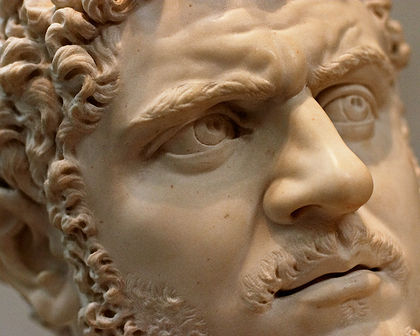Ludi Romani (Nova Roma)/Certamen Historicum de Constitutione Antoniniana
Contents |
Certamen Historicum de Constitutione Antoniniana
INTRODUCTION:
Welcome to the Ludi Romani, and to our quiz!
This year is the 1800th anniversary of the Constitutio Antoniniana, a law which was of fundamental importance in the history of Western civilization. The Constitutio Antoniniana (Latin: "Constitution [edict] of Antoninus") was an edict issued in 212 AD (a widely acceptad but debated dating), by the Roman emperor Caracalla. The law declared that all free men in the Roman Empire were to be given full Roman citizenship and all free women in Empire were given the same rights as Roman women were. For us, Nova Romans, it is an incredibly important historical event. As we all know, Romans were different from many nations in history: instead of ethical identity, the basis of Roman identity was Roman citizenship. Citizenship was the most valued asset in the lives of millions of Romans, and if somone would have asked an ancient Roman what made him Roman or what to be Roman meant, he certainly had answered: Roman citizenship.
In Nova Roma, too, Nova Roman citizenship is what makes us all real Romans. Our Nova Roman citizenship is - or must be - the most important constituent of our Roman identity, because without that we can not be truly Romans. In fact, distributing and maintaining Roman citizenship is the most significant service that Nova Roma gives to the world - and we must be proud of that. This mission of Roman revival, started with the founding of Nova Roma in 1998, now must be kept alive by you, and by participating in this historical contest, you have the opportunity to give a sign to our community how important your citizenship is for you.
Participate in the Certamen Historicum de Constitutione Antoniniana, let the world know you are proud of your Roman citizenship!
RULES:
1. Questions are posted daily, one question per one day. There will be 7 questions in total.
2. There are points for correctness and points for quickness of answers.
3. Each correct answer is worth 1 point. An extra point may be awarded for an especially detailed and excellent answer. Half point may be given for an incomplete but otherwise correct answer.
4. For each question, the contestant who is first to answer that question, regardless to its correctness, gets 3 points for quickness. The second prerson to answer the question gets 2 points, the third person gets 1 point.
5. In case of a tie between the contestants, the winner is whose points of correctness are the higher. If these are tie, too, points for quickness must be compared. If it's a tie again, the jury will decide upon examination and comparison of the quality of their answers.
6. Answers are to be sent to this e-mail address before the official publishing of the correct answers on the mailing lists of Nova Roma. .
Questions and Answers
Day 1 (September 9th)
Question #1. Before the Constitutio Antoniniana was put forth, which province did most Roman citizens reside?
- Answer #1. Italia.
Day 2 (September 10th)
Question #2. What group of people's status was uneffected by this change in the law?
- Answer #2. Slaves.
Day 3 (September 11th)
Question #3. Cassius Dio was skeptical of the Emperor's motives for the creation of this law. What did he think the motivation was?
- Answer #3. To gain more taxpayers.
Day 4 (September 12th)
Question #4. It is suspected that the law was created to distract the public from what crime?
- Answer #4. The politically motivated murder of his brother, Geta.
Day 5 (September 13th)
Question #5. Before the edict what was the most common way men became Roman citizens?
- Answer #5. Enlisting in the Roman army.
Day 6 (September 14th)
Question #6. The new citizens enjoyed two advantages from this law. What were they?
- Answer #6. Civic freedom and equality before the law.
Day 7 (September 15th)
Question #7. Our last question concerns our modern Nova Roman concept of citizenship. The idea of citizenship and Romanitas as interconnected basic elements of Roman identity is one of the very core ideas which brought Nova Roma into life, therefore the importance of possessing formal citizenship is carefully highlighted by Nova Roma. How can this Nova Roman citizenship be obtained today?
- Answer #7. By choosing a Roman name and filling out the application form which then must be approved by the censores.
Final Results
The scores and final positions are:
- 1st Place: M. Prometheus Decius Golia -- 23 points
- 2nd Place: A. Liburnius Hadrianus -- 19 points
- 3rd Place: A. Iulius Paterculus -- 14 points
- 4th Place: C. Cornelia Urbana -- 4 points
- 5th Place: M. Octavius Marcellus -- 3 points
